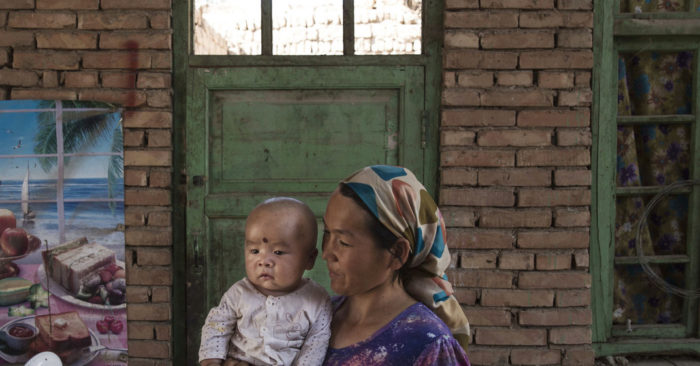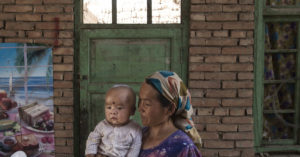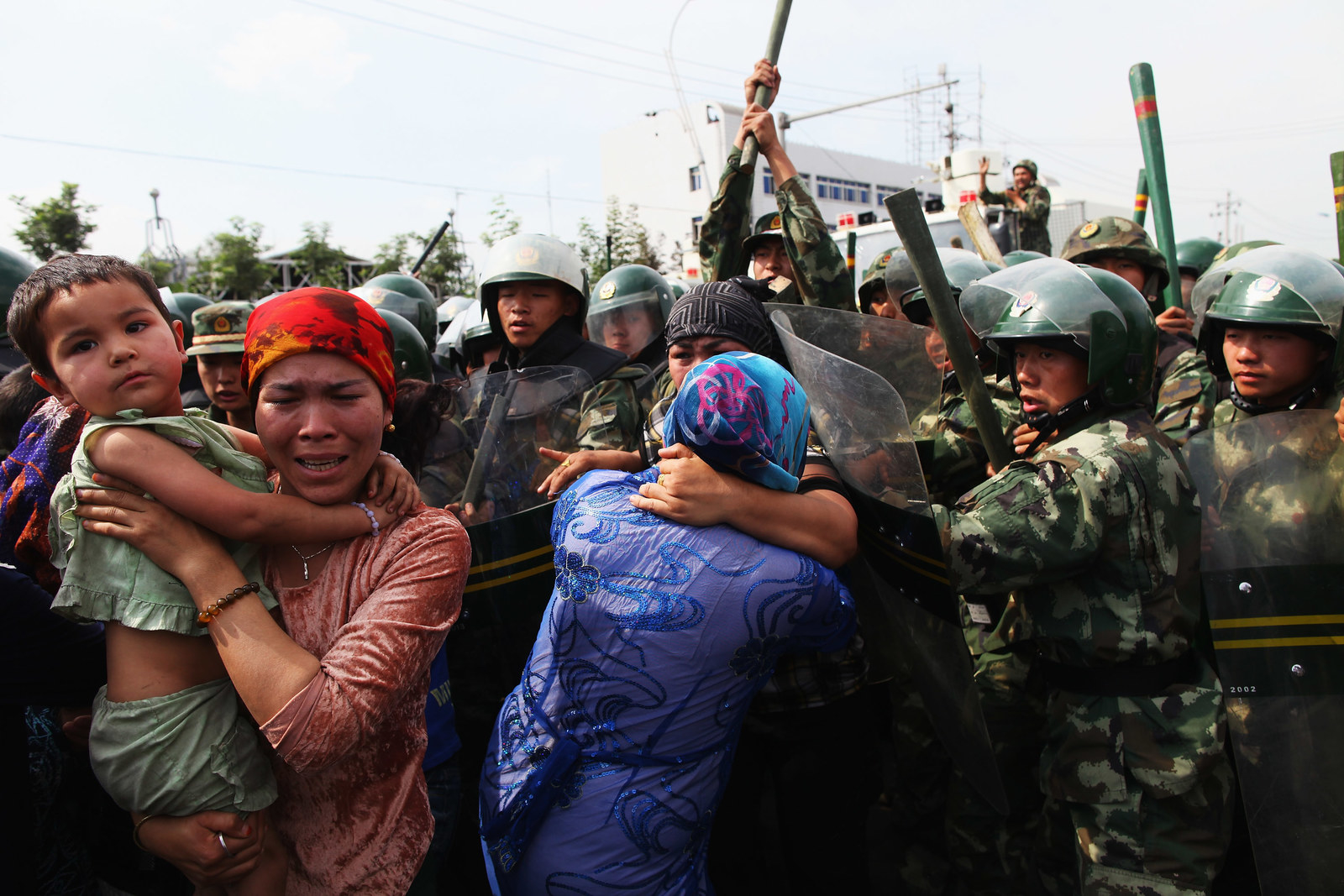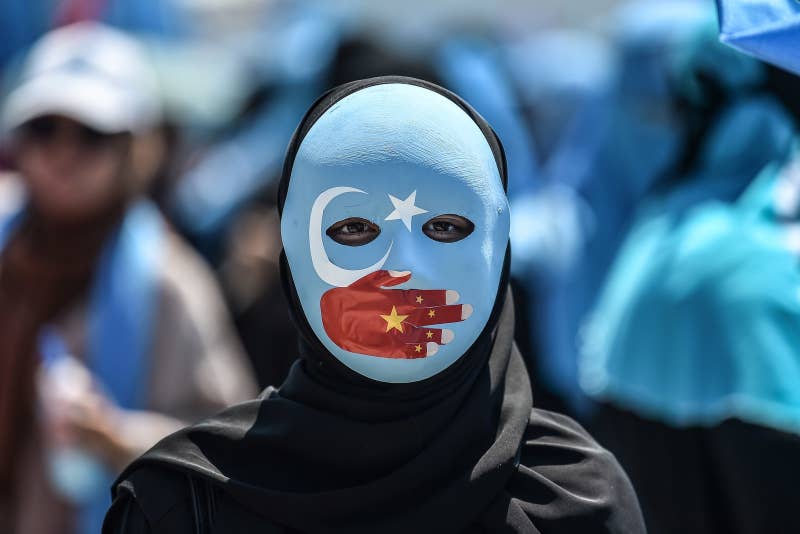This Australian Baby Boy Has Spent His Whole Life Trapped In China’s Police State. Now His Dad Wants Him Out.

Buzzfeed News, 20 February 2019
 By Megha Rajagopalan – An 18-month-old Australian boy is trapped in China, and his father in Sydney fears he will be taken away from his mother and sent to a state-run orphanage unless he can find a way to get him out of the country.
By Megha Rajagopalan – An 18-month-old Australian boy is trapped in China, and his father in Sydney fears he will be taken away from his mother and sent to a state-run orphanage unless he can find a way to get him out of the country.
The boy, whose case is being reported for the first time here, was recently granted Australian citizenship. He is the youngest Australian thought to be caught up in China’s brutal campaign of repression targeting Uighur Muslims in the country’s west and is among just a handful of such cases that are publicly known.
The boy’s mother, a Uighur who holds Chinese citizenship, was detained by Chinese authorities shortly after she gave birth in August 2017. She was only released a few days later because she was breastfeeding.
She now faces being jailed or interned in one of the many sprawling “political education” camps in China’s far west region of Xinjiang, where upwards of 1 million Uighur Muslims are being held without charge, subject to indoctrination and abuse.
Her husband, a 28-year-old Uighur Australian who is the boy’s father, is fighting a desperate battle with Australian and Chinese authorities to be reunited with his wife — who does not have Australian citizenship — and the son he has never met. Based on what Chinese authorities have told his wife, he believes that if he does not bring his son to Australia soon, the boy could be dispatched to a state-run orphanage, like many other children of Uighur migrants and detainees.
The man agreed to be identified by his initial, S. BuzzFeed News is withholding S.’s name and the names of his family members at his request because he fears naming them could endanger their security. His story has been corroborated using both public and private Australian immigration and citizenship records, correspondence, and family photographs.
“For more than a year now I haven’t given up. My hope is not dead yet,” he told BuzzFeed News by phone from Sydney. “Until I see my wife and son, I will not give up.”

In S.’s eyes, his quest to bring his wife and son to safety in Australia has been a battle fought on two fronts — one in Xinjiang’s police state, which is so repressive to Muslim minorities that it is often likened to an open-air prison, and the other through the labyrinth of Australia’s immigration bureaucracy.
Asked several questions about the case, a spokesperson for Australia’s Department of Foreign Affairs and Trade (DFAT) said, “DFAT consular officials are providing consular assistance to an Australian man whose family are in China. Owing to our privacy obligations, we will not provide further comment.”
S. is among thousands of Uighur migrants whose families have been separated by the Chinese government’s campaign, which has made it nearly impossible for Uighurs in the country to communicate with family abroad. The plight of the Uighur community in Australia has made headlines there amid an escalating crisis.
“There are no hard and fast rules about what steps the government is obligated to take; it’s very much contextual,” said Michael Bradley, S.’s attorney in Australia. “It’s hard to preempt how it’s going to play out practically. But in our view, what the government can’t do is ignore the problem.”
S. and his wife, who is 26, were childhood sweethearts. They met in middle school, where he was two years her senior. S.’s father was an academic who had worked abroad; he predicted that the already repressive environment in Xinjiang would get worse and sent S. to high school in Australia in 2009. S. sought asylum in Australia and eventually got citizenship there. But he kept in touch with his sweetheart for years through texts and phone calls. “I felt like she was the real one for me,” he said.
They got married in a religious ceremony in August 2016 in Xinjiang. On their honeymoon, they traveled to the United States to see family, and then to Turkey, where S.’s wife discovered she was pregnant. They were overjoyed.
At that time, China’s campaign to intern hundreds of thousands of Uighurs in so-called political education centers had not begun in earnest, and little was known about the government’s plans, even to people who lived in the sprawling Xinjiang region. S. and his wife were from Urumqi, the region’s capital. The city has historically been under much less pressure than places in the region’s south, where fewer Han Chinese — China’s most populous ethnic group — and more Uighurs tend to live.
In April 2017, S.’s wife decided to return home from Turkey to Urumqi for what she expected would be just a few weeks, to be close to her mother as she battled morning sickness and pregnancy cravings while S. returned to Australia. It was the last time they saw each other.
Two weeks later, police officers knocked at the door of her parents’ apartment and collected everyone’s passports, as they did for Uighurs across the region. “We never thought it would be this bad,” S. said. “She told me, ‘Don’t worry, they’ll give it back before the baby is born.’”
“But I knew something was wrong,” he said. “I felt like something was going to happen. But by then it was already too late.”
There are many reports of Uighurs being sent to internment camps after having visited Muslim countries including Turkey. S. worried the same would become of his wife. S., who gave up his Chinese citizenship, applied for a tourist visa to China, but the Chinese consulate declined his application without giving a reason. “I wasn’t there when my baby was born,” he said. “That was the hardest part.”
Sure enough, soon after S.’s wife gave birth, she was detained by police and forced to leave her baby with her parents. She was released within a few days, according to S.’s application for their son’s citizenship, because she was breastfeeding at the time. But police told her she would likely be arrested again after she was done breastfeeding because she had traveled to Turkey, according to S. Her family began bribing local police to protect her, but it was expensive, and S. said they couldn’t keep doing it for much longer.
According to S.’s statement to Australia’s Administrative Appeals Tribunal, which oversaw S.’s citizenship appeal for his son, S.’s wife was informed on her release from detention “that once the child was one year old, she would be returned to detention and most likely the son will be put in a holding camp for children, given a Han Chinese name, and adopted out to a Han Chinese family.”

A demonstrator protesting against China’s treatment of Uighur Muslims outside the Chinese consulate in Istanbul in July 2018. Ozan Kose / AFP / Getty Images
https://www.buzzfeednews.com/article/meghara/australia-boy-xinjiang-china-uighur-muslims

